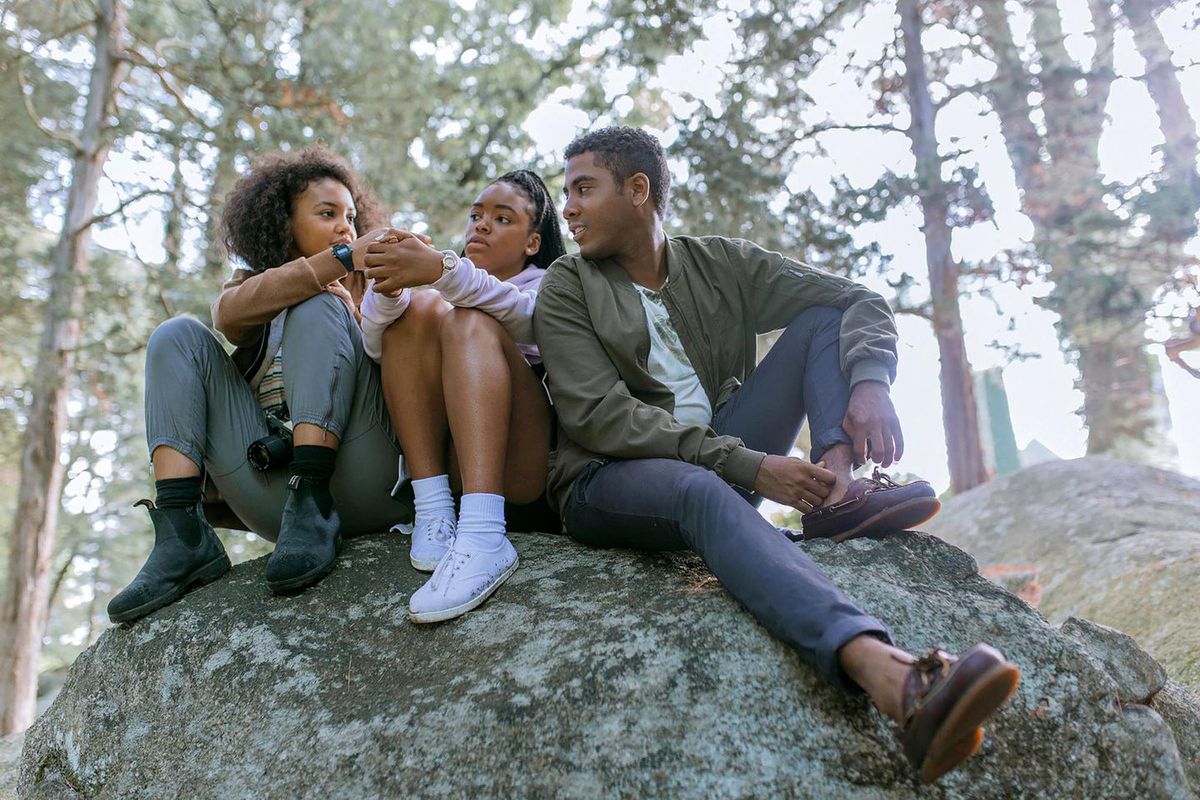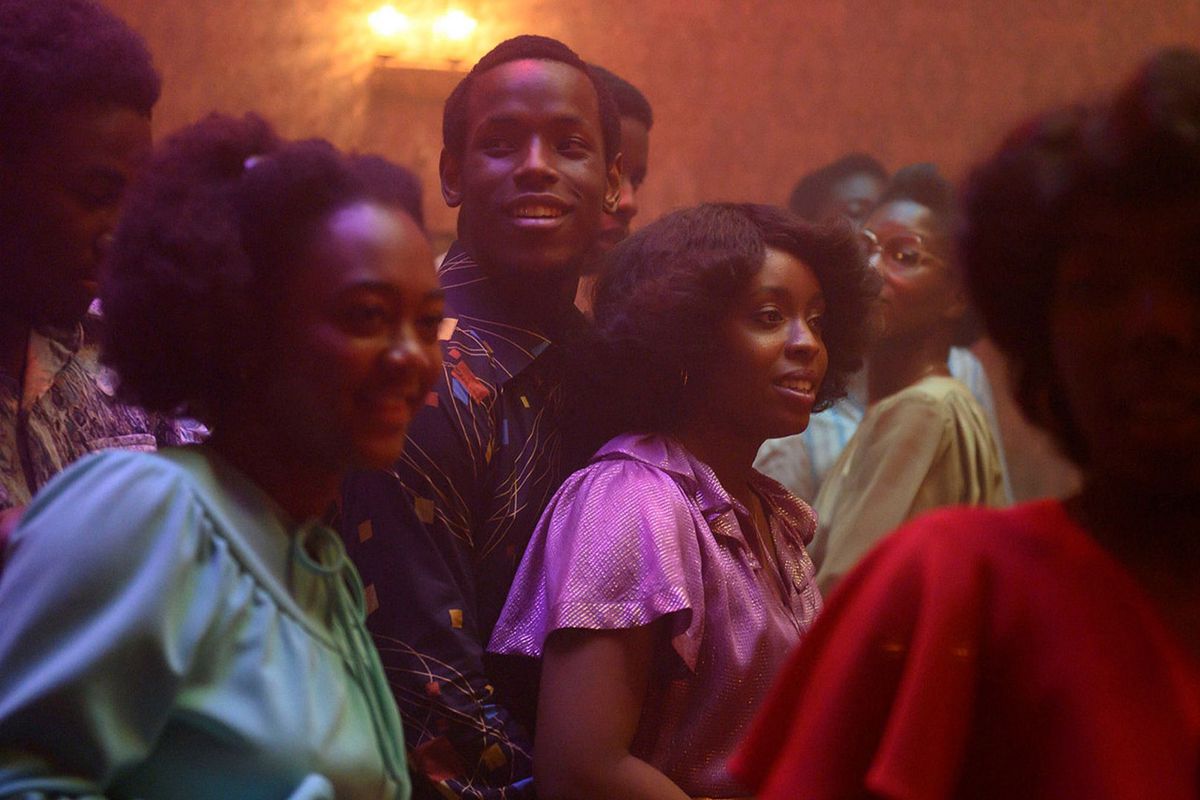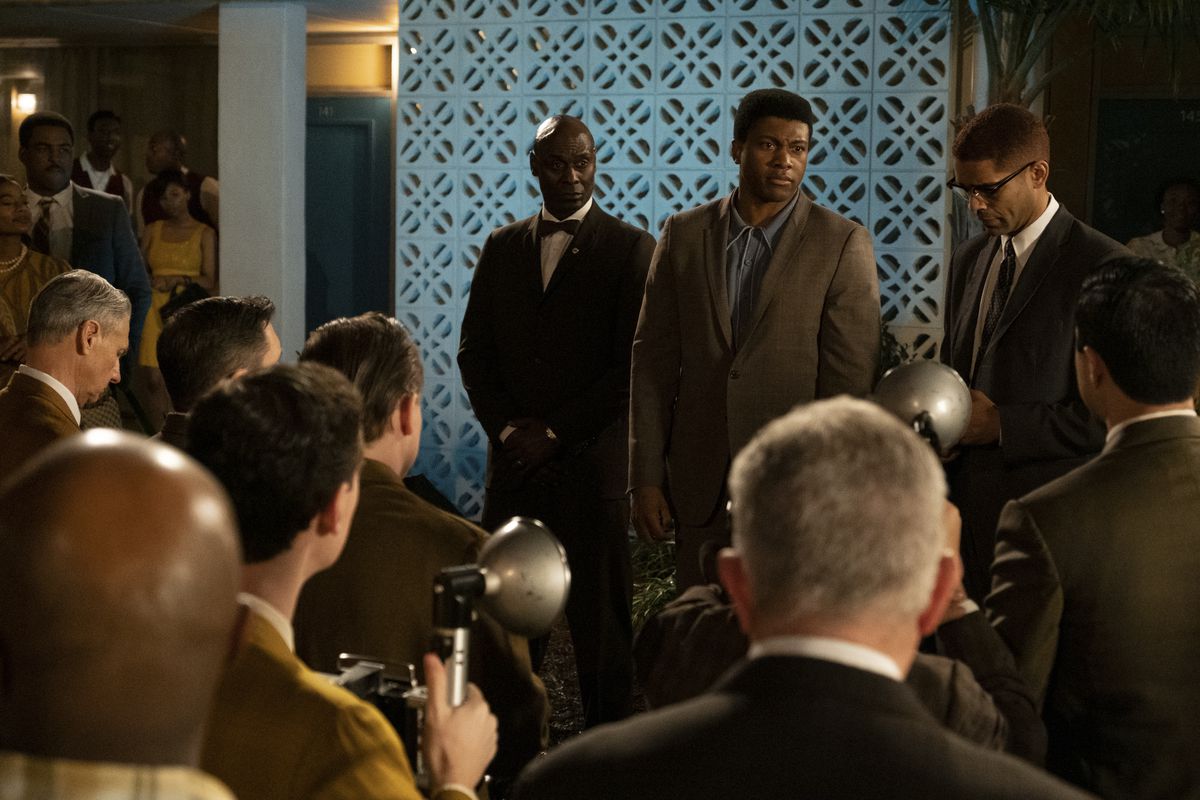
While the parent company gets criticized for lack of diversity, Amazon Studios is all-in on Black film and TV
In 2020, few studios fostered Black stories as confidently as Amazon. The past year saw an incredible change of focus for a studio that hasn’t been a major awards player since 2016’s Manchester By the Sea was up for a Best Picture Oscar. Netflix boasted an array of premiere Black titles in 2020, like Da 5 Bloods, Ma Rainey’s Black Bottom, His House, and The 40-Year-Old Version, while HBO is home to Insecure, I May Destroy You, Euphoria, and Lovecraft Country. But those platforms’ significant Black content makes up just a small slice of their yearly output. Amazon Studios, by contrast, spent the past year quietly compiling a compelling blend of critically acclaimed Black stories told through television and film.
Before 2020, few people would have called Amazon Studios one of the vanguards for Black content. Its parent company, and CEO Jeff Bezos, aren’t exactly beacons for diverse voices. Per The New York Times, “Employees and some shareholders have long groused about the lack of diversity on Mr. Bezos’s senior leadership team, a group known as the ‘S-Team’ that has 22 executives, none of whom are black.” Per HuffPost, “As of June 2018, at least seven hate groups published content in Amazon Kindle format.”
But the studio has operated independently from those controversies. With a few notable exceptions, like Darius Marder’s Sound of Metal and Julia Hart’s I’m Your Woman, Black filmmaking is now the centerpiece of Amazon Studios. The company’s 2020-21 project roster includes new voices and established auteurs, awards contenders and nostalgia bids. The studios’ creators are sanding the ever-thinning line between television and film, but they’re offering stories as varied as the results of diaspora, stories that concern resilience and resistance. How has Amazon forged these results? Through astute buys that have totally changed the studio’s face.
New dimensions

Selah and the SpadesPhoto: Amazon Studios
Like many other streamers, Amazon has built up a library of exclusive titles by relying heavily on acquisitions picked up at film festivals like Sundance, SXSW, and TIFF. Take Tayarisha Poe’s directorial debut Selah and the Spades, a coming-of-age narrative the studio picked up a few months after its Sundance 2019 debut. A story about mob-inspired factions at a pristine private school, the film features three stirring Black characters, and a sprawling world that’s ripe for expansion. After buying Selah and the Spades, Amazon immediately announced plans to expand the film into a series.
The following year, at Sundance 2020, Amazon purchased Eugene Ashe’s sophomore feature Sylvie’s Love. Like Selah and the Spades, Ashe’s swooning romance — which follows star-crossed lovers Sylvie and Robert as they rediscover each other throughout the 1950s and ’60s — maps a familiar visual and narrative vocabulary onto a Black story. Selah (Lovie Simone) grapples with the pressures of Black excellence due to the expectations of a domineering mother, while Robert (Nnamdi Asomugha) and Sylvie (Tessa Thompson), amid their timeless love, are incapable of escaping the trappings of their class and gender roles. Selah and the Spades borrows heavily from the mobster subgenre and teenage flicks like Heathers and Clueless, while Sylvie’s Love finds inspiration in Gordon Parks’ photography and Nancy Wilson’s album covers. But as familiar as the tropes can be, these stories are as unique in their explorations of trauma.
Prestige projects
When Amazon Studios’ Black films have explored physical racial traumas rather than primarily emotional ones, they’ve often taken up illuminating new perspectives. These films now serve as the centerpiece of Amazon’s awards strategy. The approach began when Amazon acquired Ladj Ly’s French-language police drama Les Misérables, a film about crooked cops obscuring the violence they’ve inflicted on the Black children who live in a Parisian ghetto. It won the Grand Jury prize at Cannes, and France selected the film as its submission to the Oscars over the critically acclaimed Portrait of a Lady on Fire. Ly’s sociopolitical thriller later captured a nomination for Best Foreign Language film at the Oscars.
The cop drama also pairs well with Steve McQueen’s five-film anthology series Small Axe, which retells true stories of London West Indians fighting for racial equality in racist surroundings. Both projects expand the map of Black narratives by excavating the consequences of Black diaspora: The oppression inflicted by police forces on African-Americans is well-publicized, particularly after the summer 2020 protests. But few Americans are likely to be as conscious of those same extralegal forces being employed against Black people in other countries.
The police officers of Les Misérables, the character Chris (Alexis Manenti) in particular, treat the local Black Muslims as an invading army. In a reign of terror, the police enact prejudiced searches against women at bus stops, and harass local children as though the kids were drug kingpins. In Les Misérables, Ly not only captures the maltreatment exacted upon a community, but charts the varying ways policing can corrupt everyone involved, from the officers to the citizens.

Small Axe: Lover’s RockPhoto: Amazon Studios
Every film in Steve McQueen’s Small Axe series but one (Education) also explores police aggression, but the third film — Red, White and Blue — most closely mirrors the conflict in Les Misérables. In McQueen’s police drama, John Boyega plays a model police officer who hopes to change his prejudiced, abusive department from the inside out, even as his own father is being harassed by the police. Featuring immersive compositions while exposing the underbelly of a rotting police ethos, Red, White and Blue is exemplary of the Small Axe series, which has sanded down the lines dividing television and film and looks like a prime contender at the Emmys and Golden Globes. It’s a compact drama that excavates the fleeting nature of the immigrant dream.
Heavily Jamaican-accented Ken Logan (Steve Toussaint) wanted his children to assimilate. In his posher accent, his son Leroy (Boyega) admonishes his dad, “You wanted us more British than the British!” But Leroy joining the police doesn’t seem subversive to Ken, it just seems like a betrayal. Conversely, no matter how much Leroy excels in the academy, his white colleagues and racist leadership undermine him.
While McQueen’s anthology series isn’t all violence and trauma, the often visceral director discovers a softer touch in Small Axe. He spotlights the comforting music and food born from London West Indians, but always with an eye for the ways the British police targeted Black people from the 1960s through the ’80sm particularly by squashing the ways West Indians expressed their culture. The legal system offers little recompense: When officers viciously beat Ken for pushing back against their abuses, he has to choose whether to seek justice, knowing he could torpedo his son’s career.
Garrett Bradley’s black-and-white documentary Time, which both the New York and Los Angeles critics’ association recognized as 2020’s best non-fiction film, also concerns the inequities of the justice system. Fox Rich and her husband Rob were both arrested in 1997 for robbing a convenience store. Neither denies committing the crime; even so, Fox served three and a half years in jail, while her husband was sentenced to 60 years. Time is about how often, for Black people, the punishment doled out by the justice system rarely fits the crime. It’s also about one woman’s pursuit to be reunited with the love of her life.
Lovingly captured with VHS footage taken by Fox, who anticipated Rob would want to see the memories he missed while in jail, the images capture how prison forces the Black family to rely on resilience after they’re torn apart. Snippets show Fox’s tireless public speaking on her husband’s behalf, and the multiple ways her children wonder when their dad is coming home. In Time, as opposed to Les Misérables and Red, White and Blue, the trauma is spiritual, arising from forced separations that can be charted from the era of American slavery to the present-day prison-industrial complex. The three films taken together form a harrowing tryptich for the parallel nature of Black life and Black resistance, no matter the country.
And beyond
Regina King’s feature directorial debut One Night in Miami, adapted from Kemp Powers’ play of the same name, could easily fit into the prestige discussion. Though it won’t move to Amazon Prime Video until January 15, it’s probably the crown jewel of Amazon’s 2020 awards push. The film has a good shot at picking up Oscar nominations for Best Supporting Actor, Best Adapted Screenplay, and Best Original Score. It could also find some luck in the Best Picture field, or even Best Director — a nod there would not only make King the first Black woman nominated in the category, but give her a chance to become the first Black person to win the prize.
King follows the four biggest Black cultural icons of the 1960s — Malcolm X (Kingsley Ben-Adir), Jim Brown (Aldis Hodge), Sam Cooke (Leslie Odom Jr.), and Cassius Clay (Eli Goree) — the fateful night of Clay’s 1964 heavyweight title win against Sonny Liston. In a tiny Miami hotel room, they debate the ways Black people might find independence, whether financially, spiritually, politically, or through self-reliance.

One Night in MiamiPhoto: Patti Perret/Amazon Studios
Their conversations are a microcosm for the conversations about liberation that Black people have been sharing for decades, from Frederick Douglass to Black Lives Matter. The story also witnesses an agitated Malcolm X being stalked by the FBI’s covert counterintelligence program Cointelpro. The aim of the surveillance program was to undermine powerful Black leaders under the auspices of the dangers they posed to the white power structure. It set the stage for the same extralegal law-enforcement practices that are seen in Time, Les Misérables, and Red, White and Blue.
Amazon’s spotlight of Black stories would be tiresome if the films they acquired only dealt with trauma. But nearly all of the narratives are multi-faceted. Selah and the Spades is a love story of sorts between Selah and her protégé, and it finds comedy in the school’s hardened criminality. Sylvie’s Love is a gleaming period piece filled with resplendent costumes, warm compositions, and blissful music. The Small Axe films feature a bopping soundtrack, chic 1970s-inspired garb, and a stomach-rumbling lens that worships a pot of simmering curry as though it were liquid gold. (All three elements are best exemplified in the intoxicating, joyful house party at the center of the project’s second film, Lovers Rock.) And One Night in Miami is one of 2020’s funniest movies. Its snappy script humanizes these larger-than-life figures by trading in sharp barbs and even more loving deprecation.
Amazon Studios’ demonstrable in Black storytelling will also continue past awards season. Paramount Pictures has struggled with the pandemic to the point of selling The Trial of the Chicago 7 to Netflix and The United States vs. Billie Holiday to Hulu, and in 2021, Amazon plans to release Coming 2 America, the sequel to Eddie Murphy’s beloved 1988 comedy. This kind of nostalgic revival is common for white properties like the Bill & Ted movies, or Disney’s animated features, but Black classics rarely get the same treatment.
At the same time, like Steve McQueen with Small Axe, Moonlight and If Beale Street Could Talk director Barry Jenkins is trying his hand at serial entertainment. His upcoming 11-episode adaptation of Colson Whitehead’s alternate-universe novel The Underground Railroad will explore a fantasy version of the historical passage slaves took to freedom. Jenkins has already dropped stills and snippets from the miniseries, and his style of evocative, uplifting storytelling is already resonating in the released frames.
Amazon the parent company is hardly a bastion of diversity, but its film studio is betting heavily on Black movies to expand its reach and draw respect and engagement. It’s a bet that veteran studios have been leery to make, thanks to the repeatedly disproven prejudice that Black films don’t sell overseas. Maybe Amazon, as a streaming service, is insulated from such worries. Even so, more than Netflix, Hulu, or HBO Max, Amazon has made Black storytelling not just a fragment of its library, but a noticeable centerpiece. In a copycat industry, Amazon is forging its own path, and it’s one worth following.
